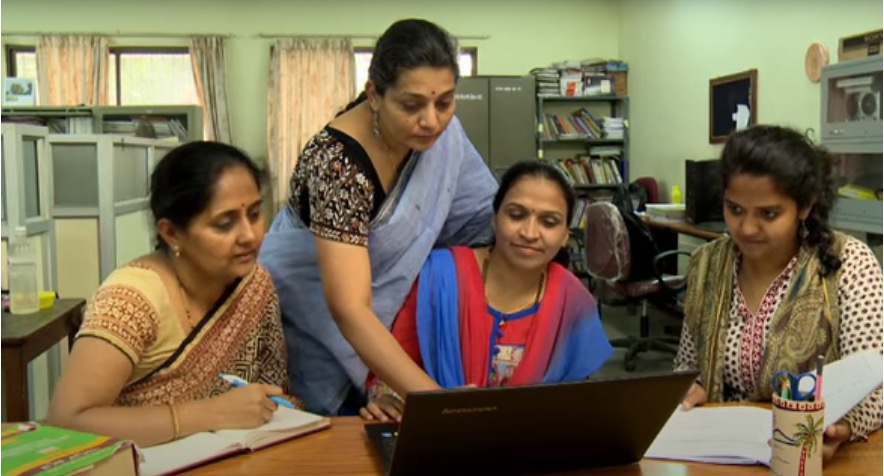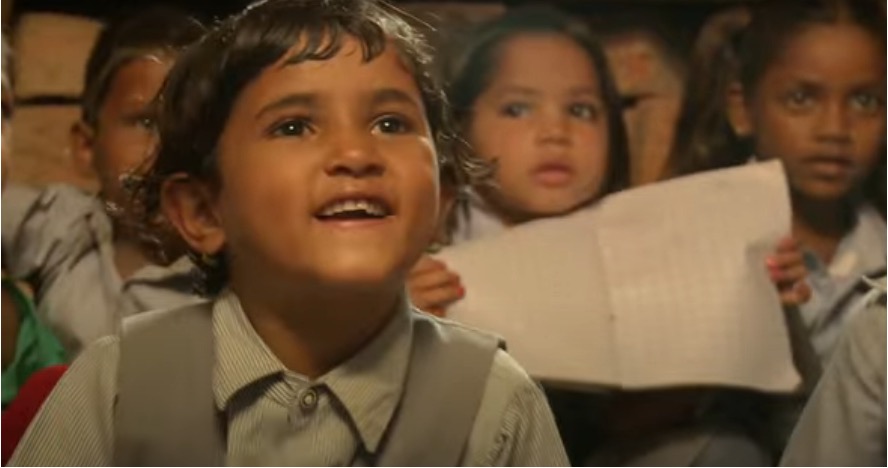Transforming professional teacher development in India

In India, there’s an ambition to improve both primary and secondary education, and recognition that developing teachers’ professional competency is essential to achieving that goal. As Freda Wolfenden, Professor of Education and International Development, explains, new approaches to teacher education that harness the use of OERs – open educational resources – are offering very effective ways to improve teaching practice at scale.
Education policy in India encourages teachers to make teaching and learning child-centred. To make this happen there needs to be a change in the way that teachers and pupils interact with each other that enables children to become active learners. TESS-India was initiated by the government of India to address this challenge. It was a partnership between the Open University, the Indian Ministry of Human Resource Development (MHRD) and the Departments of Education in seven states in India (Assam, Bihar, Karnataka, Madhya Pradesh, Odisha, Utter Pradesh and West Bengal).
Our research identified that to make teaching and learning child-centred there needed to be a change in teacher education as well as teaching; both teachers and teacher educators needed to learn and adapt their teaching in their own classrooms, lecture theatres or seminar rooms. We also knew that this new learning could be achieved with carefully designed Open Educational Resources (OER) – free and easy-to-access teaching resources. These OER resources put teaching theory into practice and help teacher educators discuss what they have learned from their classroom experiences with their peers, which deepens their understanding of teaching and enables them to adapt.
A free and accessible toolkit, plus face-to-face online support
Together with our partners we created an Open Educational Resources toolkit, including video as well as text resources, to support the professional, practice-based learning of primary and secondary teachers of Literacy, Maths, English and Science. We also created an online course designed to show both teacher educators and teachers how to use the resources, with support available through regular face-to-face online sessions and social media platforms.
TESS-India introductory video.
A key benefit of the OER is that they can be adapted for local needs, cultures and practices, making teaching more effective as well as enhancing communities and identity. We achieved this by working with groups of educators in each partner state to translate and modify the OER to reflect local curricula, geographical features, cultural and institutional practices. Teachers can now select and use OER that meet their own professional learning needs. These localised OER have now been integrated into formal teacher education programmes by both state governments and NGOs.
We think this project is outstanding in its innovative and impactful teaching and learning approach.
The Guardian University Award 2017 panel
Feedback from educators was positive and encouraging. One teacher from Odisha said that when the resources were used “students became active and interested, and began to ask questions. There was less of a gap between my pupils and me. The resources have given me more ideas that I can use to make my class more creative and successful”. Another said: “Students’ attendance is getting better day by day due to their interest in the TESS-India materials… children are not scared to talk to the teachers as they were before… the materials help in arousing children’s curiosity…the child’s fear of the teacher has gone away through the strategies suggested in the OER and videos”.

More than 26,000 sets of the OER have now been distributed either in print or on SD card, CD/DVD or pen drives, and are also freely available online, where the TESS-India videos have been downloaded from YouTube over 3 million times. The scale and effectiveness of the project has been recognised by several major awards, including the Guardian University Award, whose judges said: “We think this project is outstanding in its innovative and impactful teaching and learning approach. In terms of impact, the initiative contributes to development of new forms of teacher education, using web based, globally available technology”.
The Open Education Resources offered though TESS-India enable teacher education that promotes inclusive, participatory, child-centred teaching to be provided at scale. Through TESS-India, we were able to show educators and stakeholders how information communication technology can give teachers access to more personalised, equitable and effective professional development. So far, TESS-India has had an impact on the practice of over one million trainee teachers, teachers and teacher educators by developing their understanding of active learning, and we believe this approach has the potential to positively influence many more teachers and students in India and beyond.
Written by Freda Wolfenden, Professor of Education and International Development, The Open University.
Research enquiries
For research enquiries email:
[email protected]
For student and degree enquiries email:
[email protected]
